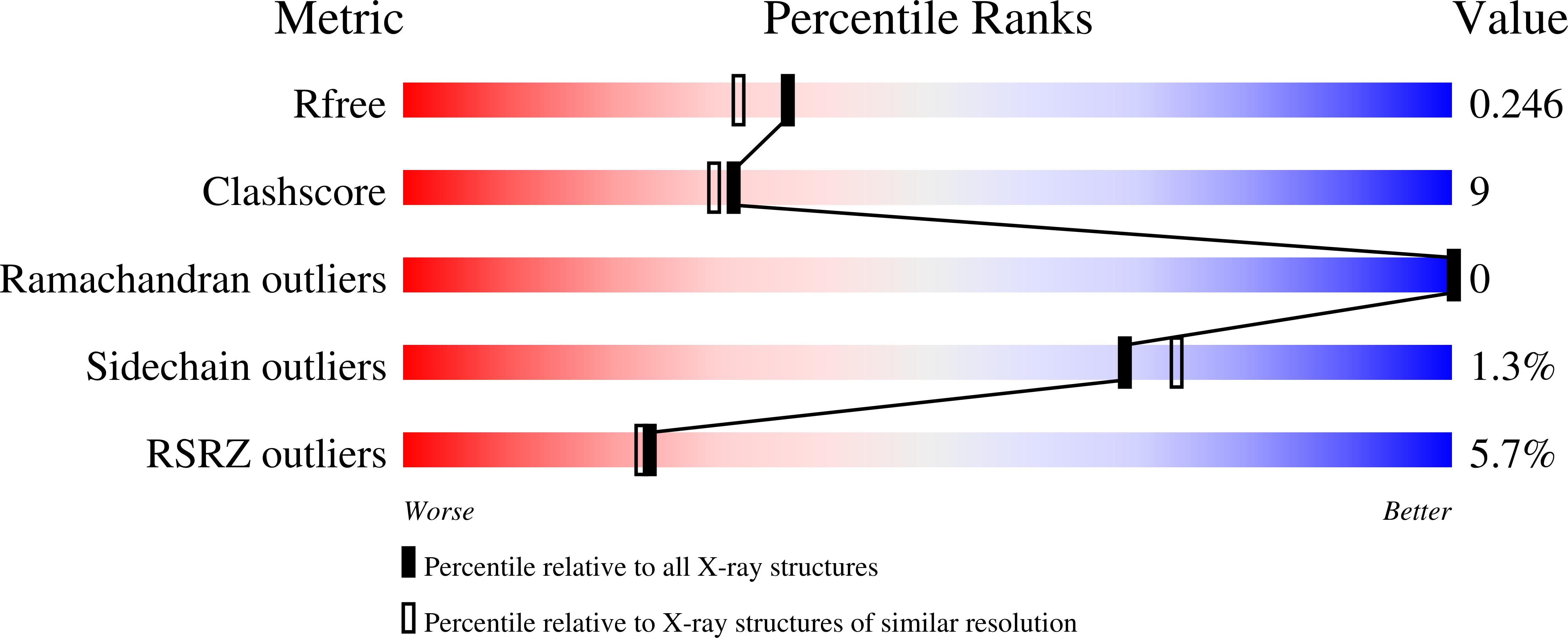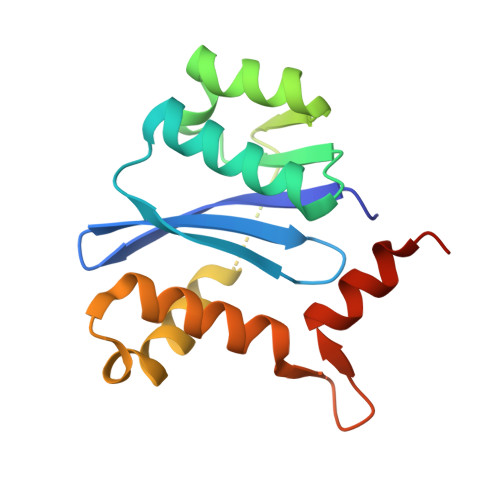Parallel screening of low molecular weight fragment libraries: do differences in methodology affect hit identification?
Wielens, J., Headey, S.J., Rhodes, D.I., Mulder, R.J., Dolezal, O., Deadman, J.J., Newman, J., Chalmers, D.K., Parker, M.W., Peat, T.S., Scanlon, M.J.(2013) J Biomol Screen 18: 147-159
- PubMed: 23139382
- DOI: https://doi.org/10.1177/1087057112465979
- Primary Citation of Related Structures:
3VQ4, 3VQ5, 3VQ6, 3VQ7, 3VQ8, 3VQ9, 3VQA, 3VQB, 3VQC, 3VQD, 3VQE, 3VQP, 3VQQ, 4AH9, 4AHR, 4AHS, 4AHT, 4AHU, 4AHV - PubMed Abstract:
Fragment screening is becoming widely accepted as a technique to identify hit compounds for the development of novel lead compounds. In neighboring laboratories, we have recently, and independently, performed a fragment screening campaign on the HIV-1 integrase core domain (IN) using similar commercially purchased fragment libraries. The two campaigns used different screening methods for the preliminary identification of fragment hits; one used saturation transfer difference nuclear magnetic resonance spectroscopy (STD-NMR), and the other used surface plasmon resonance (SPR) spectroscopy. Both initial screens were followed by X-ray crystallography. Using the STD-NMR/X-ray approach, 15 IN/fragment complexes were identified, whereas the SPR/X-ray approach found 6 complexes. In this article, we compare the approaches that were taken by each group and the results obtained, and we look at what factors could potentially influence the final results. We find that despite using different approaches with little overlap of initial hits, both approaches identified binding sites on IN that provided a basis for fragment-based lead discovery and further lead development. Comparison of hits identified in the two studies highlights a key role for both the conditions under which fragment binding is measured and the criteria selected to classify hits.
Organizational Affiliation:
St. Vincent's Institute, Fitzroy, Victoria, Australia.

















